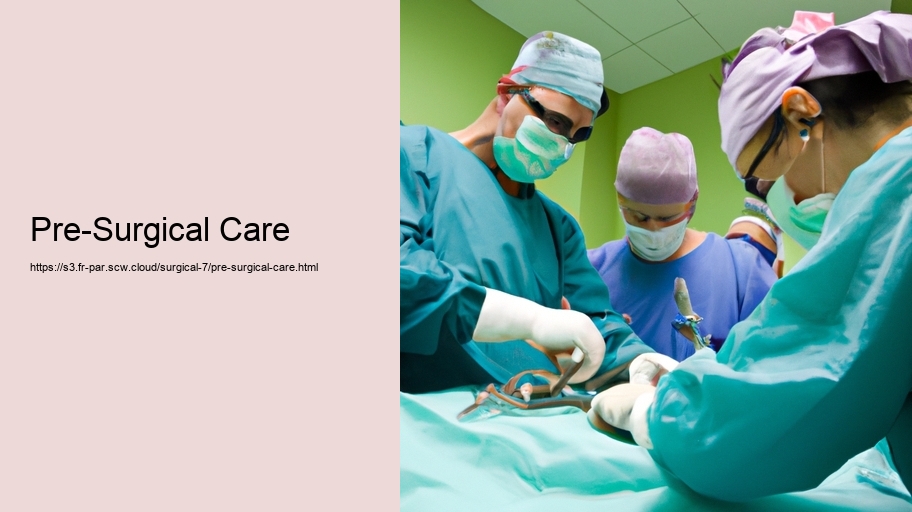Pre-surgical care is a critical aspect of the healthcare process that ensures patients are appropriately prepared for an upcoming surgical procedure. It encompasses a broad range of activities, from initial assessments and patient education to specific medical interventions aimed at reducing the risk of complications during and after surgery. The importance of pre-surgical care cannot be overstated; it not only has a direct impact on the success of the surgery but also plays a significant role in the patient's recovery and overall health outcome.
The journey of pre-surgical care begins when surgery is first deemed necessary. This could be due to a variety of reasons, such as a diagnosis that requires surgical intervention, a chronic condition that has progressed to a stage where surgery is the best treatment option, or an acute injury that needs to be addressed operatively. Whatever the case, the process of pre-surgical care aims to prepare the patient physically and mentally for the procedure ahead.
One of the first steps in pre-surgical care is the preoperative assessment. This is a comprehensive evaluation that includes a thorough review of the patient's medical history, a physical examination, and any necessary diagnostic tests. The goal is to identify any potential risks or underlying conditions that could affect the outcome of the surgery. The healthcare team, which often includes surgeons, anesthesiologists, nurses, and sometimes specialists, uses this information to develop a tailored plan for the patient's care before, during, and after the surgery.
Education is another cornerstone of pre-surgical care. Patients are provided with information about the procedure, what to expect during their hospital stay, and how to prepare for the surgery. This includes guidance on fasting before the operation, managing current medications, and understanding the anesthesia process. Educating patients not only helps to alleviate their anxiety but also empowers them to play an active role in their own care, which can lead to better outcomes.
Additionally, pre-surgical care involves optimizing the patient's health to support a successful surgery and recovery. For example, patients who smoke are often advised to quit, as smoking can impair wound healing and increase the risk of respiratory complications. Similarly, patients with diabetes may need to work closely with their healthcare team to ensure their blood sugar levels are well-controlled before the surgery.
Nutritional status is also a critical focus. Proper nutrition is essential for healing, so patients may be advised to eat a balanced diet, and in some cases, they may receive specific nutritional supplements to improve their strength and immune function. Physical activity and rehabilitation exercises may also be recommended to enhance the patient's fitness and mobility, which can aid in postoperative recovery.
The final phase of pre-surgical care is the immediate preparation before the surgery. This typically includes instructions on when to arrive at the hospital, what personal items to bring, and the administration of any preoperative medications or interventions required. The healthcare team will also ensure that all necessary consents are signed and that the patient's questions or concerns are addressed.
In conclusion, pre-surgical care is a multifaceted and essential process that prepares patients for surgery. It involves a collaborative approach from a dedicated healthcare team and is tailored to meet the unique needs of each patient. By adequately preparing patients through assessments, education, health optimization, and logistical planning, pre-surgical care aims to minimize risks, reduce anxiety, and set the stage for a successful surgery and a smooth recovery. The attention to detail in pre-surgical care reflects the broader commitment to patient safety and quality care within the field of medicine.
